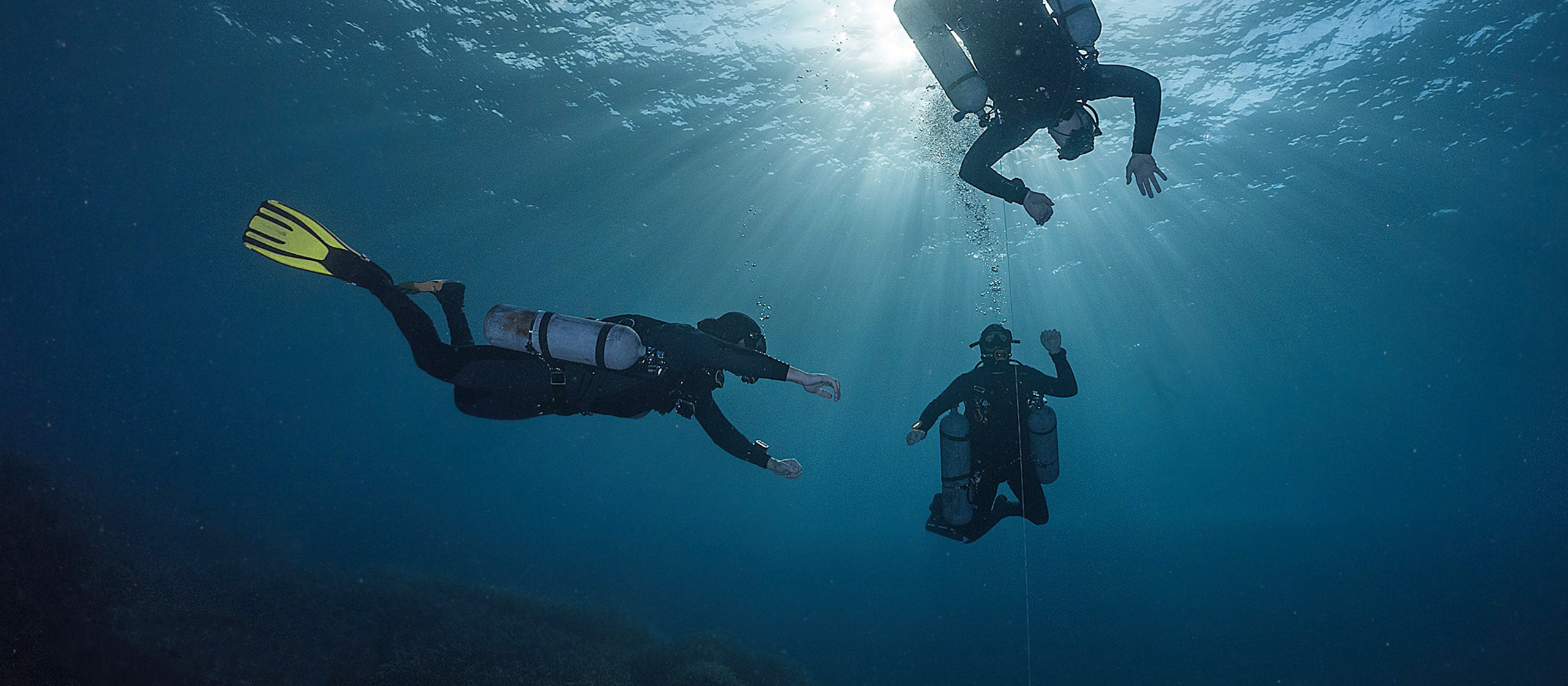Member profile
The Art of Teaching: interview with Steve Martin
Steve Martin has been scuba diving for the past 18 years, and is now a world-renowned professional diving instructor specialising in cave diving and sidemount diving. He is best known for having developed his own Sidemount Essentials Course, which includes his signature online video-based training program which has set an industry benchmark. As part of DAN Europe’s campaign #WhyWeDoIt, Steve speaks to Alert Diver about his efforts to instil positive change in the diving world through environmentally-friendly and sustainable scuba diving and training.
How did you get into diving?
I got into diving through my father. He and his friends decided to take a scuba diving class in their late thirties and, at around the age of 12, me and my best friend started joining them on their weekend trips to help them carry their equipment. When they would come up from the water with big smiles on their faces, we used to constantly ask them what is was like and when they would let us start diving ourselves.
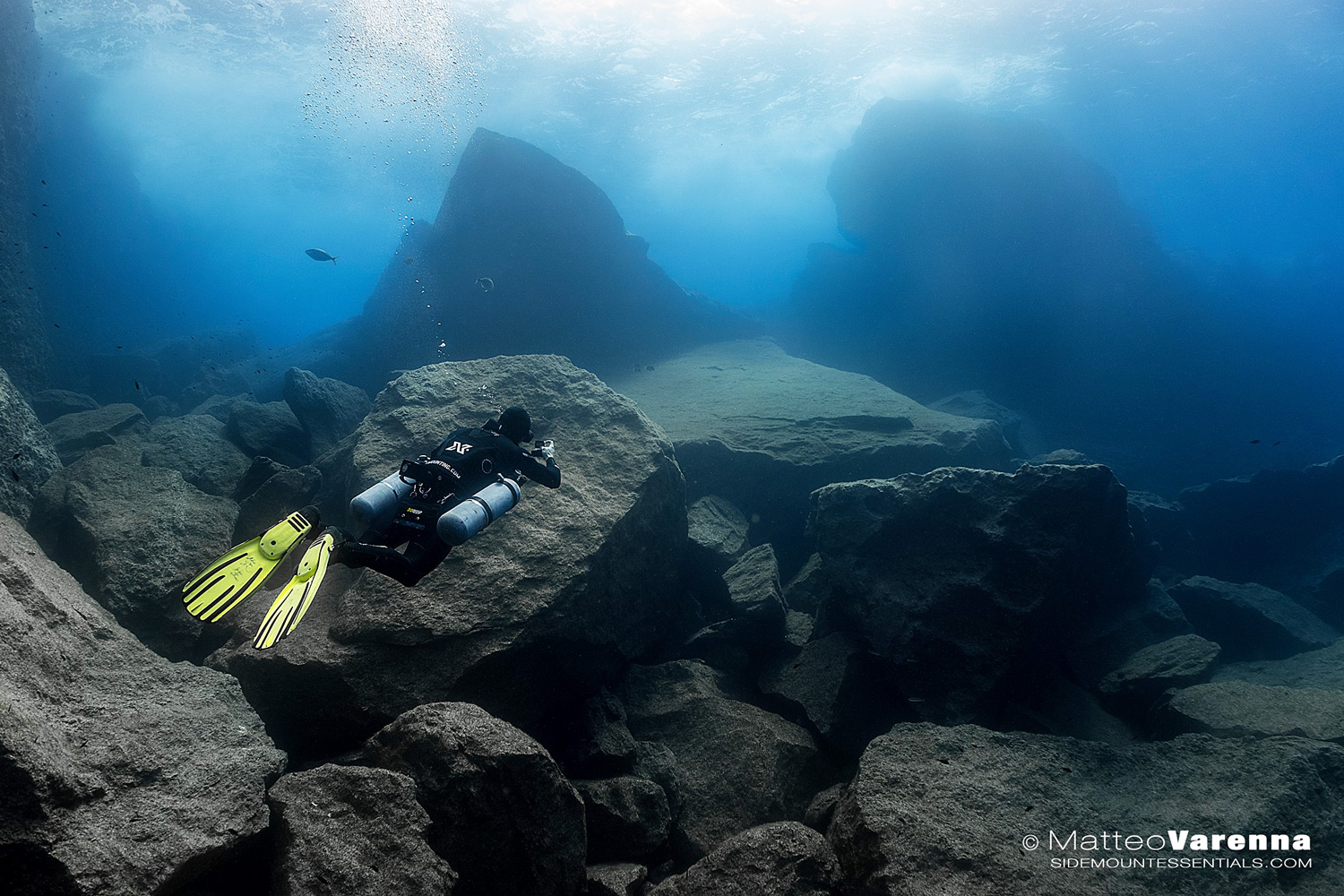
How did your first diving experience feel?
My first experience was on a family trip in Majorca when I was 12. We dived into the ocean, and I remember seeing a small octopus and touching it, but quickly pulling away when I felt its sticky texture. After that, I was pretty much hooked. I can’t really put how I felt into words to be honest.
When did you realise that scuba diving was your life?
Before scuba diving I was teaching water skiing, which I had a passion for from a very young age as well. I had been studying computer science at school, but I eventually decided to move away from academics and become a water skiing instructor. It was probably the best decision I ever made. It wasn’t until I started teaching that I realised how much I loved it, arguably more than doing the activity itself.
But by teaching water skiing I couldn’t really pursue my dream to travel the world. So aged 16, I connected the dots and started my journey towards becoming a scuba diving instructor. Since then I’ve travelled all over the globe, teaching in Europe, Mexico, Australia and Japan.
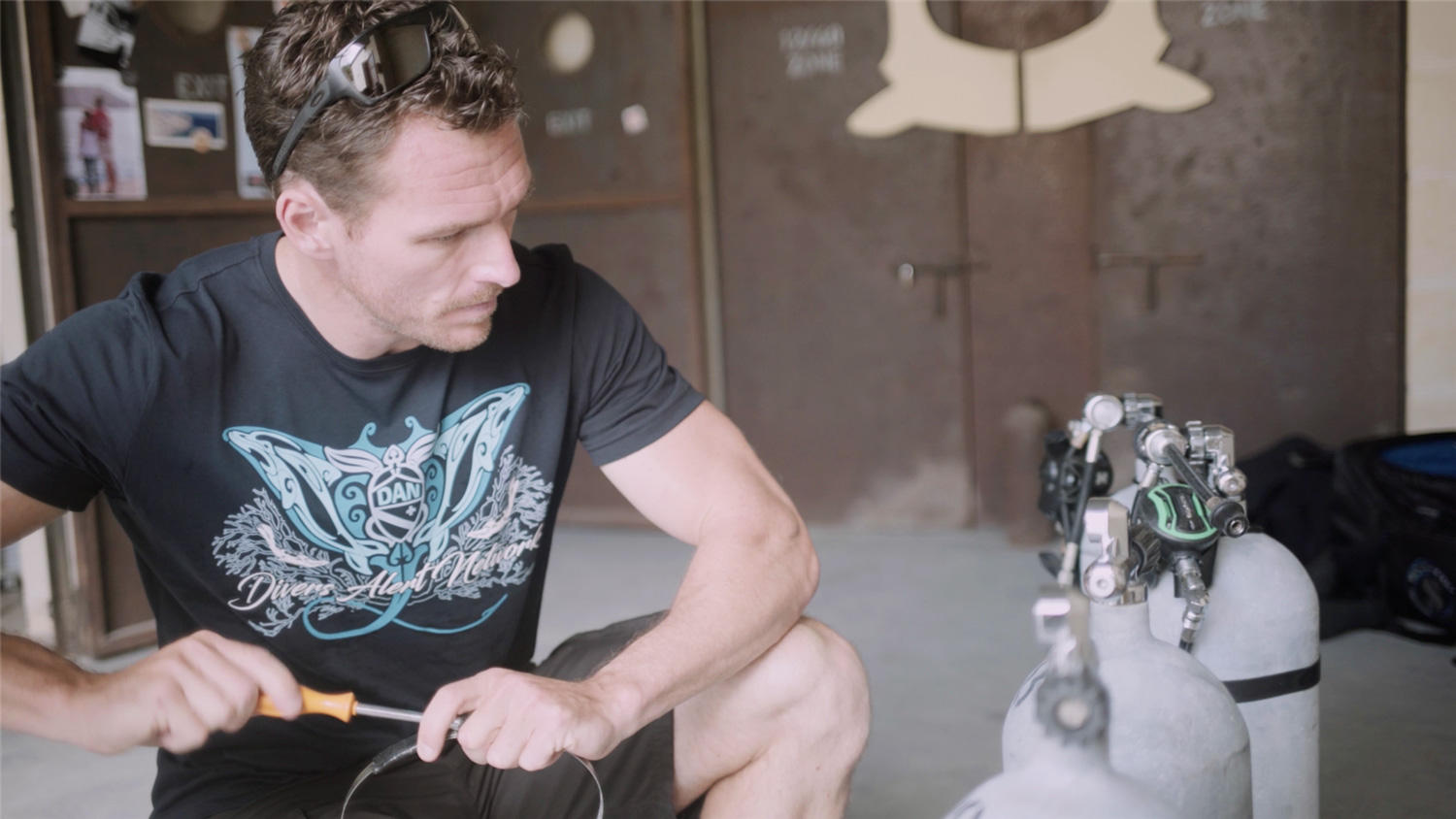
What was the most memorable experience you’ve had since then?
There are so many spectacular things I’ve seen whilst diving, including the breathtaking cave systems in Mexico and swimming with manta rays in the Maldives. But over those kinds of experiences, I would still pick moments I shared with the divers I’ve trained as the most memorable and unforgettable, especially when training them was challenging.
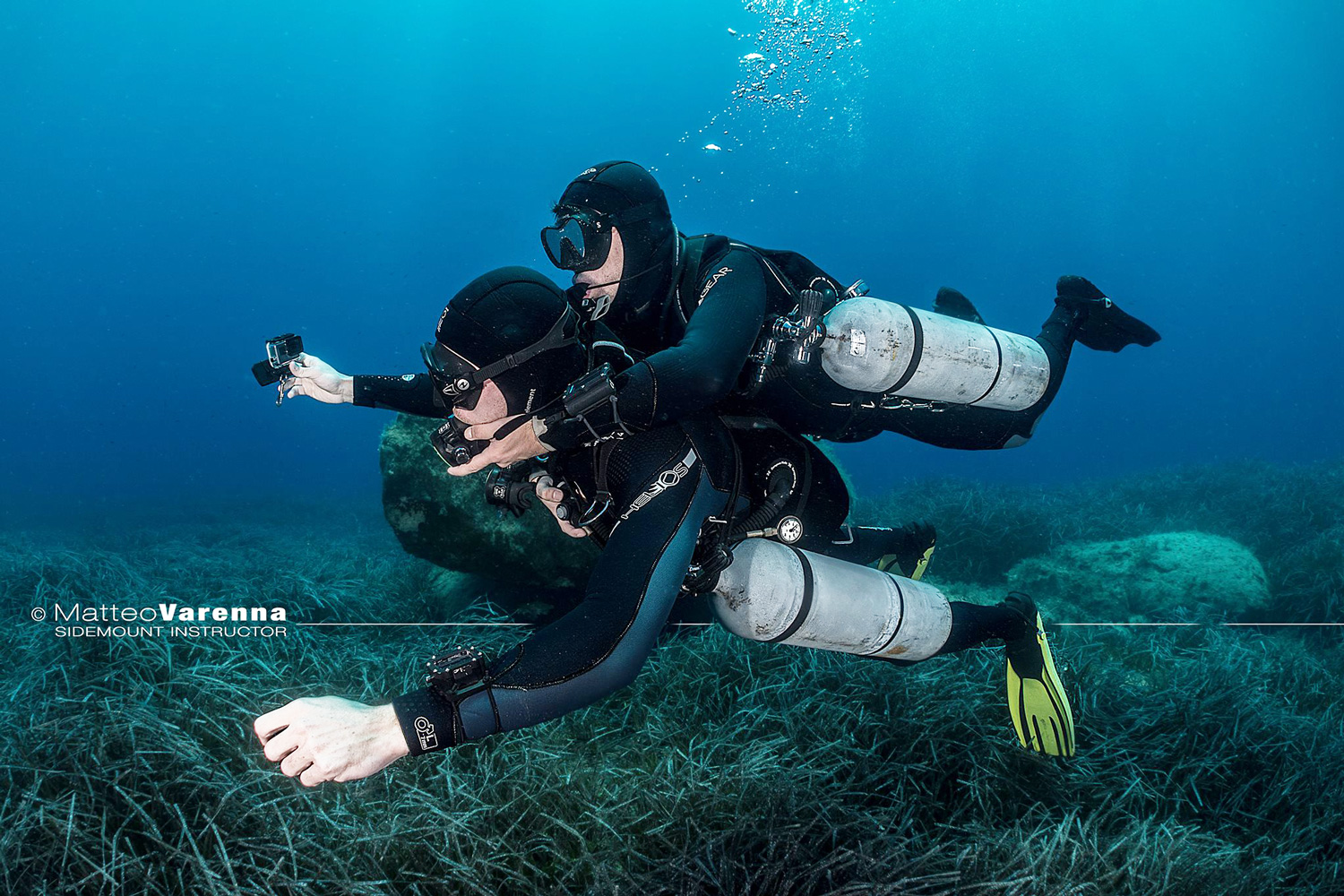
What inspires you to keep teaching?
Wanting to see improvements in the industry inspires me to keep teaching. I think the industry places a lot of pressure on instructors to perform. By that, I mean that it’s unfair to expect instructors to teach a group of 6 to 8 unexperienced divers at once. Now, I teach just 2 or 3 people per course. This insures that I have the right time available for people to get them to the level they want to reach, if world class instructors teach a maximum of 3 people per course, how can a lesser experienced instructor possibly teach more than that?
One way I’ve tried to contribute to industry improvements was to create online video-based materials that students could look at before they start their actual training, as opposed to simply handing them a manual. That way, they come better prepared for their training and already know more or less what to expect before entering the water. Details of those courses are found on sidemounting.com. During in-water training I also take video feedback of my students, which is another reliable and individually customised training tool that they can refer to after training.


What is your relationship with the water?
Simple answer is I love being in it and everything to do with it, we know more about outer space than we do about what covers 70% of our planet. I spent years enjoying sports above the water, so it is only natural I wanted to explore under it. Now I enjoy it though my profession and am one of the very lucky ones that get to make the underwater world their workplace.
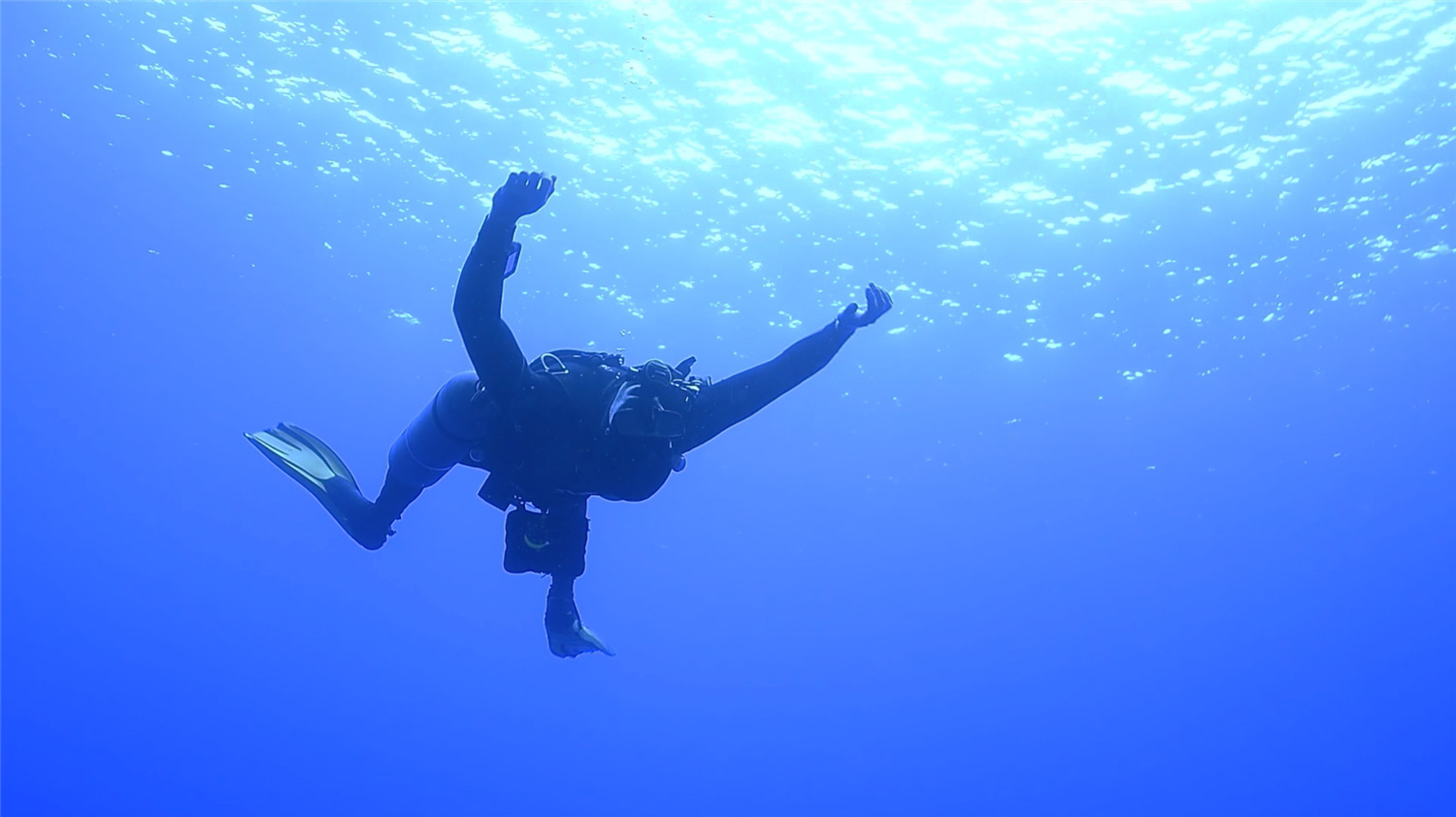
You also specialise in sidemount diving, which gives divers the option to respect better the natural environment that they are in. How does that important aspect of sidemount diving affect your relationship with the ocean?
When you teach diving properly, you don’t need your students to have any sort of contact with the underwater ground. In fact, we like to use the phrase ‘take photos and leave only bubbles’. I find that with the sidemount diving I offer, I can eliminate the chances of divers leaving a negative imprint on the environment due to increased buoyancy control and awareness levels the students develop.
With sidemount diving, I’m able to get a diver to a higher skill level much quicker than with any other equipment configuration, thus increasing divers safety and competency quickly.
When you want to get close to something beautiful underwater to get a nice shot, the last thing you want to do is to take a photograph and damage the aquatic environment around you, simply because your trim and buoyancy skills aren’t adequate. But if you’ve been trained well in essential dive skills, you will find all the surrounding marine life will interact with you the way that it should without any repercussions.
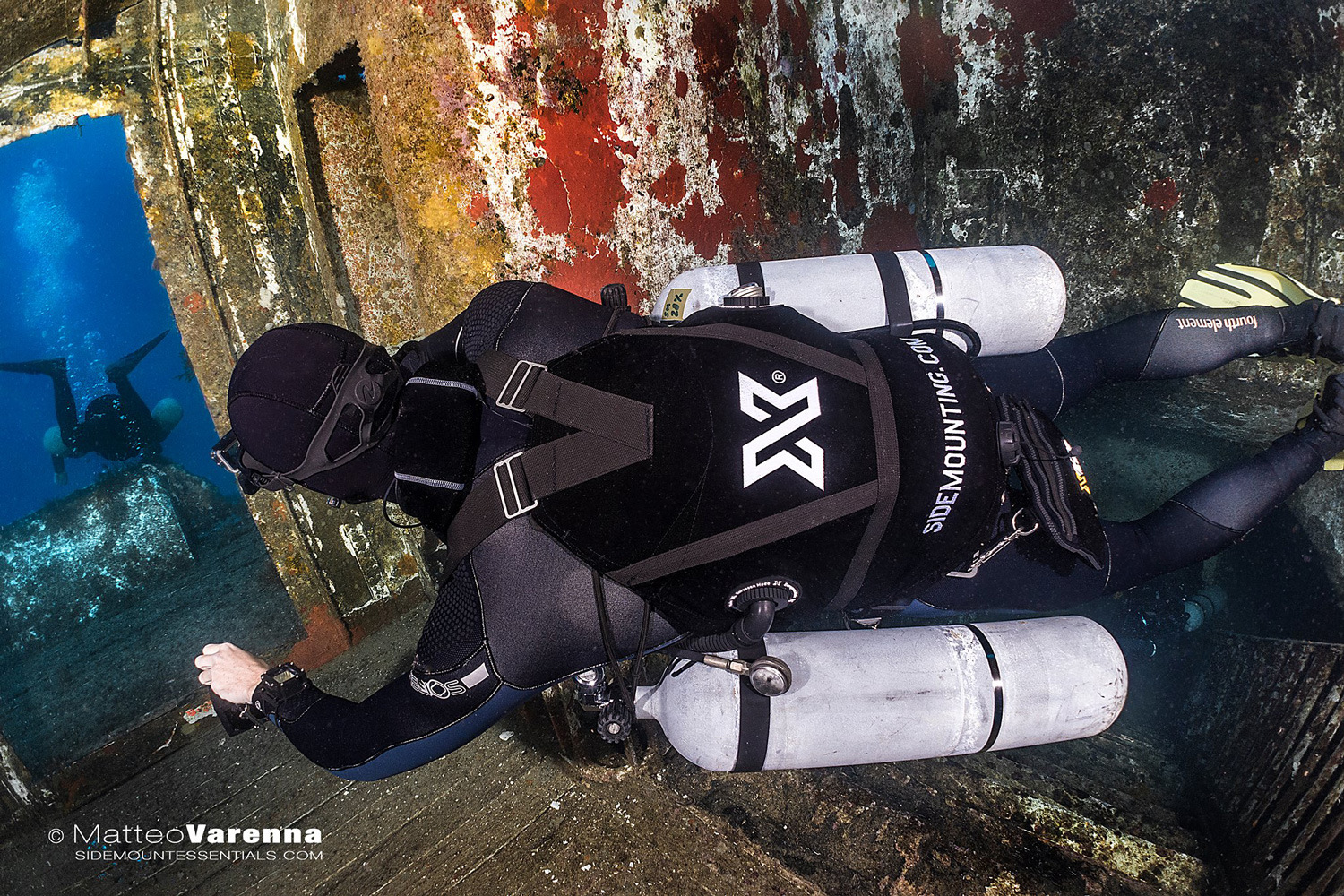
So how much impact do you believe diving should have on the environment?
As little as possible. If we can interact better with the underwater world in general and by reducing excessive fishing, diving can be much safer and more enjoyable. Through diving, we can educate people on the beauty of the underwater world and how to respect it. The more divers we put underwater, who can learn first-hand about how to protect it, the better it is for everyone.
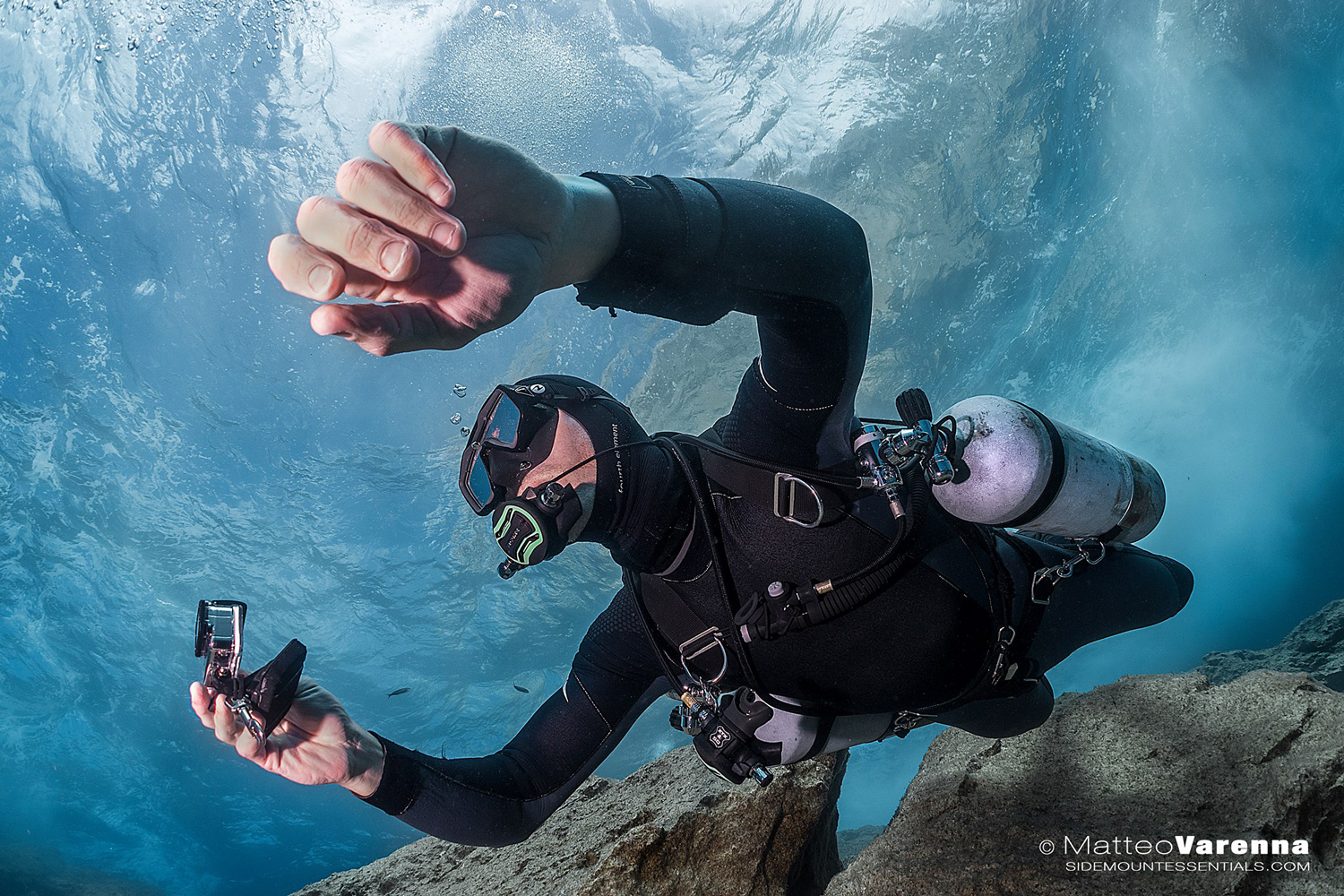
How does sustaining a healthy balanced lifestyle help your diving?
The different types of diving that I do require a certain level of personal fitness. I’m a non-smoker, but I’m still aware of the strict guidelines about how much you should smoke before and after diving. Unfortunately, many diving instructors don’t respect these guidelines.
I feel that I’m able to give up anything that I need to give up that is going to benefit me in the long run. I do like a drink occasionally, for instance. But if I have a diving trip coming up, I find it easy to stay away from having a drink. As a technical driver, and more so as a trainer, you just can’t give in to these sorts of binges or addictions.
I do a lot of cross-fit, which helps me stay healthy and in shape. When I used to do gym training in the past, I would get lower back pain from years of carrying twin sets in and out of my car whenever I went diving. Since I’ve started doing cross-fit, my back muscles have become stronger and my back pain has now become non-existent. Not to mention that it’s also made diving easier.

How does it feel to have DAN on your side?
Based on my own experience with DAN, and on what I’ve heard from fellow divers throughout my years of travelling and teaching, I’ve always heard great things. The DAN team are always there to help out, no matter the issue.
For me, reputation means everything. I’m only as good as the last course I teach. So, in the same way, I find that DAN is the best choice when it comes to insurance because of its long-standing reputation.
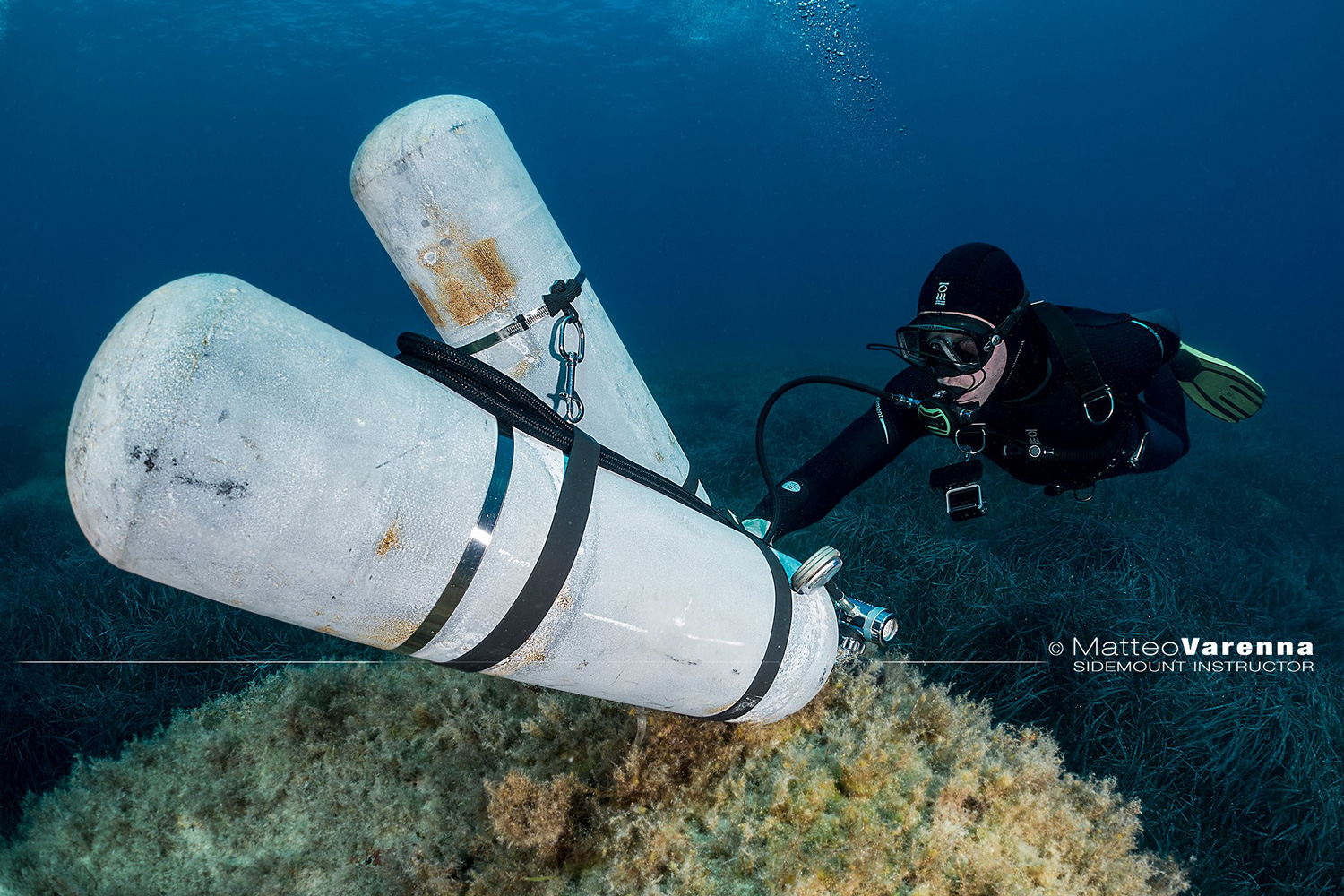
And what about all the research that DAN undergoes towards making diving a safer and healthier experience?
DAN is doing some very important work to help educate people, especially with statistics. If you can change one instructor’s mindset for the better, and help them recognise the impact that they have on their students, that can snowball into fellow instructors getting on board with the positive change as well.
And, above that, if you can convince diving agencies to restructure themselves based on these research findings, then the diving industry is definitely going to improve. I believe DAN is on its way to truly making this change happen.

